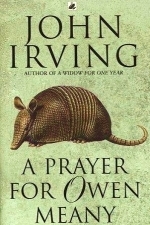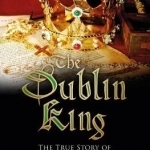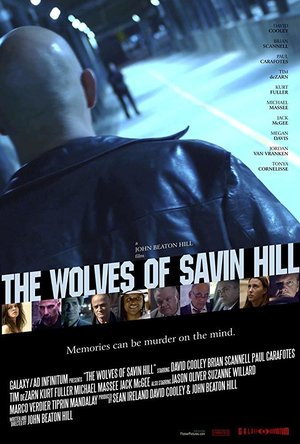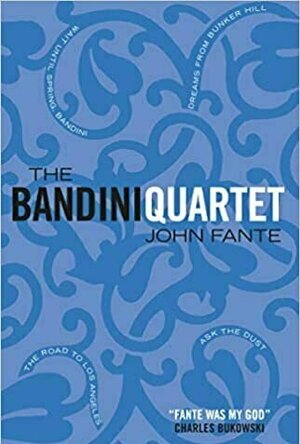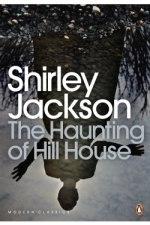Search
Search results
The Chocolate Lady (94 KP) rated A Prayer for Owen Meany in Books
Oct 5, 2020
None of John Irving's novels have touched me as much as much as this one, and if you ask me, his work went drastically down hill after he wrote this. You can read my review here. https://tcl-bookreviews.com/2014/08/04/john-irvings-masterpiece/
Deborah (162 KP) rated The Mythology of the Princes in the Tower in Books
Dec 21, 2018
Another accessible, well-written, clear book from John Ashdown-Hill which sets out to myth-bust everything you think you knew about the 'Princes in the Tower' - including why that title is a misnomer. Felt a little sad as John passed away earlier this year (2018) as I looked forward to each contribution he made to this period of history. I will certainly re-read his books with pleasure - thank you John.
Matthew Krueger (10051 KP) rated The Haunting (1963) in Movies
Oct 4, 2019
The Haunted House
The Haunting- is one of the best horror movies of all time. Its scary, spooky, haunting, terrorfying, horrorfying and more.
The Plot: Dr. John Markway, an anthropologist with an interest in psychic phenomena, takes two specially selected women to Hill House, a reportedly haunted mansion. Eleanor (Julie Harris), a lonely, eccentric woman with a supernatural event in her past, and the bold Theodora (Claire Bloom), who has ESP, join John and the mansion's heir, cynical Luke (Russ Tamblyn). They are immediately overwhelmed by strange sounds and events, and Eleanor comes to believe the house is alive and speaking directly to her.
From the great novel- The Haunting of Hill House by Shirley Jackson.
In 2010, The Guardian newspaper ranked it as the 13th-best horror film of all time. Director Martin Scorsese has placed The Haunting first on his list of the 11 scariest horror films of all time.
The film was remade in 1999 by director Jan de Bont, starring Liam Neeson, Lili Taylor, Catherine Zeta-Jones and Owen Wilson, but that version was heavily panned by critics and audiences. Dont watch that film, but instead watch this masterpiece.
I would highly reccordmend this movie.
The Plot: Dr. John Markway, an anthropologist with an interest in psychic phenomena, takes two specially selected women to Hill House, a reportedly haunted mansion. Eleanor (Julie Harris), a lonely, eccentric woman with a supernatural event in her past, and the bold Theodora (Claire Bloom), who has ESP, join John and the mansion's heir, cynical Luke (Russ Tamblyn). They are immediately overwhelmed by strange sounds and events, and Eleanor comes to believe the house is alive and speaking directly to her.
From the great novel- The Haunting of Hill House by Shirley Jackson.
In 2010, The Guardian newspaper ranked it as the 13th-best horror film of all time. Director Martin Scorsese has placed The Haunting first on his list of the 11 scariest horror films of all time.
The film was remade in 1999 by director Jan de Bont, starring Liam Neeson, Lili Taylor, Catherine Zeta-Jones and Owen Wilson, but that version was heavily panned by critics and audiences. Dont watch that film, but instead watch this masterpiece.
I would highly reccordmend this movie.
Deborah (162 KP) rated The Third Plantagenet: George, Duke of Clarence, Richard III's Brother in Books
Dec 21, 2018
John Ashdown-Hill really has the ability to write clearly and compellingly. This latest offering takes a look at the middle of the brothers of York, George, Duke of Clarence.
Much less well known than his more famous brothers, Edward IV and Richard III, nonetheless, Clarence and his life and death were am important part of the story of this period. His supposed death by drowning in a butt of Malmsey wine is one of those well known 'facts' that might be a mythology all of its own, but Ashdown-Hill provides evidence to suggest that drowning was used as a method of execution in this period and considered kinder than hanging or beheading!
It's not a long book and a good proportion is given over to a study of the Clarence vault at Tewksbury abbey and the remains therein. If you are interested in the period, this is certainly worth a read. I look forward to the forthcoming companion volume, The Dublin King.
Much less well known than his more famous brothers, Edward IV and Richard III, nonetheless, Clarence and his life and death were am important part of the story of this period. His supposed death by drowning in a butt of Malmsey wine is one of those well known 'facts' that might be a mythology all of its own, but Ashdown-Hill provides evidence to suggest that drowning was used as a method of execution in this period and considered kinder than hanging or beheading!
It's not a long book and a good proportion is given over to a study of the Clarence vault at Tewksbury abbey and the remains therein. If you are interested in the period, this is certainly worth a read. I look forward to the forthcoming companion volume, The Dublin King.
Deborah (162 KP) rated Richard III: The Road to Leicester in Books
Dec 21, 2018
Call, me cynical, but this does feel like a bit of an attempt to cash in on all the interest stirred by the discovery of King Richard's last resting place. It's a pretty short book - around 90 pages of main text with colour plates and gives a brief overview. The problem is that there are lots of errors - the names of Elizabeth Wydevilles eldest children for starters and the rather sensationalist statement that Edward V disappeared into his room in the Tower "never to come out again" - well, he's evidently not still there, so he must have come out one way or another!
If you want something sensible and readable, John Ashdown-Hill is the author to go with IMO.
If you want something sensible and readable, John Ashdown-Hill is the author to go with IMO.
I was pleased to learn recently that John Ashdown-Hill is due to be honoured by the Queen - I can't think of anyone who has contributed so much to our understanding of late medieval history or is capable or writing in such a clear and rational style.
This book deals with what is known of The Dublin King - probably what most of us might think of from our school history as 'Lambert Simnel'. There are no easy or clear answers here, but anyone with even a rudimentary understanding must wonder why a genuine Yorkist claimant (The Earl of Lincoln) would support such an obvious pretender as the 'Lambert Simnel' is always shown to be. Ashdown-Hill sifts through contemporary sources to give some thought provoking theories on what was really going on. so much is difficult to prove, which is a little frustrating, but it has been a worthwhile exercise to draw together all the known facts here. There are quite a number of references to his own other works, but then no one else has gone quite as far as he in studies of this period, so in many ways it is inevitable. He has such an accessible style that his books are definetly worth reading.
This book deals with what is known of The Dublin King - probably what most of us might think of from our school history as 'Lambert Simnel'. There are no easy or clear answers here, but anyone with even a rudimentary understanding must wonder why a genuine Yorkist claimant (The Earl of Lincoln) would support such an obvious pretender as the 'Lambert Simnel' is always shown to be. Ashdown-Hill sifts through contemporary sources to give some thought provoking theories on what was really going on. so much is difficult to prove, which is a little frustrating, but it has been a worthwhile exercise to draw together all the known facts here. There are quite a number of references to his own other works, but then no one else has gone quite as far as he in studies of this period, so in many ways it is inevitable. He has such an accessible style that his books are definetly worth reading.
Gareth von Kallenbach (980 KP) rated The Wolves of Savin Hill (2014) in Movies
Aug 16, 2019
The indie movie, The Wolves of Savin Hill is a very fine directorial debut for John Beaton Hill. He also wrote this story where sentimentalities and brutality clash between two best friends who have lost touch over the years. In their youth, they made a promise youth that now haunts them as they are adults. In what results is a trial of what’s left of their friendship. In how this film treats the subject matter is like that of silent lucidity.
In what they have become, Tom (David Cooley) stayed in Boston only to grow up to be an alcoholic troublemaker and Sean (Brian Scannell) relocated to Los Angeles with Tom’s sister Emily to eventually work the beat as a cop with an axe to grind. Anyone who tries to mess with him often got the end of the stick. But when Emily is found dead and news reaches home, Tom goes to LA to confront Sean. The web of deceit he finds himself in is more than he can handle.
Cooley and Scannel deliver strong performances. The plot only gets stranger at every succeeding moment, and the draw this film creates gets viewers invested into wanting to understand the psyche of each of these leading men. Hill crafted a nicely enticing film that wraps two time periods together to reveal the darkest nature of what friends are willing to do for each other. The flashbacks are far more interesting than the now.
To reveal anymore information will only spoil the causality of how these two have to contend with each other. When this film hits more festivals, viewers can discover for themselves in what human nature means according to this filmmaker. The hills have eyes and what he sees may not be necessarily good.
In what they have become, Tom (David Cooley) stayed in Boston only to grow up to be an alcoholic troublemaker and Sean (Brian Scannell) relocated to Los Angeles with Tom’s sister Emily to eventually work the beat as a cop with an axe to grind. Anyone who tries to mess with him often got the end of the stick. But when Emily is found dead and news reaches home, Tom goes to LA to confront Sean. The web of deceit he finds himself in is more than he can handle.
Cooley and Scannel deliver strong performances. The plot only gets stranger at every succeeding moment, and the draw this film creates gets viewers invested into wanting to understand the psyche of each of these leading men. Hill crafted a nicely enticing film that wraps two time periods together to reveal the darkest nature of what friends are willing to do for each other. The flashbacks are far more interesting than the now.
To reveal anymore information will only spoil the causality of how these two have to contend with each other. When this film hits more festivals, viewers can discover for themselves in what human nature means according to this filmmaker. The hills have eyes and what he sees may not be necessarily good.
Aiden Gillen recommended The Bandini Quartet in Books (curated)
Hadley (567 KP) rated The Haunting of Hill House in Books
Apr 19, 2019
Strong writing (1 more)
Good characters
Run-on sentences (1 more)
No explanations for paranormal activity
Contains spoilers, click to show
If you're looking for a scary story, 'The Haunting of Hill House' just doesn't add up.
The story is still worth reading because Jackson's story telling is something that is missing in literature today. The reader is introduced to characters that are different enough to be interesting; their development is just right that it leaves the reader satisfied. The story moves along well enough that the pace keeps us from getting bored. And each turn of the page keeps the reader guessing what is going to happen next- a must for any ghost story.
In 'The Haunting of Hill House,' Jackson mostly focuses on the character Eleanor - a woman who recently lost the sickly mother she had taken care of for years, to receiving an invitation for a paranormal experiment at the infamous Hill House. Eleanor also seems to be the main character affected by the house, not only having her name written on a wall, but also having her named called out by spirits during an automatic writing session with them.
Our first introduction to the Hill House happens as Eleanor arrives: "No Human eye can isolate the unhappy coincidence of line and place which suggests evil in the face of a house, and yet somehow a maniac juxtaposition, a badly turned angle, some chance meeting of roof and sky, turned Hill House into a place of despair, more frightening because the face of Hill House seemed awake, with a watchfulness from the blank windows and a touch of glee in the eyebrow of a cornice. Almost any house, caught unexpectedly or at an odd angle, can turn a deeply humorous look on a watching person; even a mischievous little chimney, or a dormer like a dimple, can catch up a beholder with a sense of fellowship; but a house arrogant and hating, never off guard, can only be evil. This house, which seemed somehow to have formed itself, flying together into its own powerful pattern under the hands of its builders, fitting itself into its own construction of lines and angles, reared its great head back against the sky without concession to humanity. It was a house without kindness, never meant to be lived in , not a fit place for people or for love or for hope. Exorcism cannot alter the countenance of a house; Hill House would stay as it was until it was destroyed."
We never see Hill House through any other character's eyes, and the viewpoints mostly come from Eleanor (a missed opportunity,I think). Everyone who arrives at the house feels uneasy about it: doors and curtains close on their own, unexplained banging noises down the hallways(only at night), the chattering and laughter of children, and with an oddly placed cold spot. Yet,to the reader's dismay, nothing is fully explained by the end of the story - no apparitions show up, no one seems harmed by anything unseen (although, the character, Luke, suddenly shows up with a bruised face that is never discussed), and the reader ends up wondering if this really is a product of mass psychosis. It almost seems like Jackson ended the story abruptly just to finish it(the book is only a little under 200 pages). She set up wonderful scenarios, but without explanations, we're left with a very empty feeling.
Nearing the end of the book, the doctor, John Montague, who has ran the entire experiment, has his wife,Mrs. Montague,arrive a few days later, who seems to know more about contacting spirits than he does: "The library? I think it might do; books are frequently very good carriers, you know. Materializations are often best produced in rooms where there are books. I cannot think of any time when materialization was in any way hampered by the presence of books." And with the arrival of Dr. Montague's wife, we get one of the major experiences in the entire book. Although her character is quite annoying- even seen through the eyes of other characters- she brings some of the most ghost story elements, one of which is her automatic writing sessions: "Planchette felt very strongly about a nun, John. Perhaps something of the sort- a dark, vague figure, even- has been seen in the neighborhood? Villagers terrified when staggering home late at night?" None of the characters, besides Mrs. Montague's companion, Arthur, believe her automatic writing sessions are real, even after Eleanor's name is brought up during one. As I stated before, without any explanations, the reader is even led to believe that nothing was meant to come of these sessions whatsoever.
The ghost story elements may not have been strong in the story, but the characters make up for them. They constantly question what they are experiencing and/or seeing, they question their surroundings, and they question each other -Jackson does an amazing job weaving paranoia into the story line.
One of the more shocking and unbelievable scenes is when Eleanor is suddenly not fearful of the house anymore: "And here I am, she thought. Here I am inside. It was not cold at all, but deliciously, fondly warm. It was light enough for her to see the iron stairway curving around and around up to the tower, and the little door at the top. Under her feet the stone floor moved caressingly, rubbing itself against the soles of her feet, and all around the soft air touched her, stirring her hair, drifting against her fingers, coming in a light breath across her mouth, and she danced in circles. No stone lions for me, she thought, no oleanders; I have broken the spell of Hill House and somehow come inside. I am home, she thought, and stopped in wonder at the thought. I am home, I am home, she thought; now to climb." It was as if Eleanor was a completely different person in just a few pages.
I do have a couple of problems with 'The Haunting of Hill House,' mostly centering around the use of run-on sentences and extra long paragraphs. The run-on sentences are a waste of time because Jackson seems to merely elaborate on something that could be easily explained or experienced with fewer words. The paragraphs, however, need to be broken up for scene transitioning purposes -when she transitions from one scene to the next, she can confuse the reader with them: one paragraph will have all the characters in the dining area, but in that same paragraph, just a few sentences down, Jackson has the characters suddenly in the parlor,drinking Brandy. Maybe the intention was to make the reader feel paranoid and uneasy like the characters in the book, but it was certainly not needed with the way of Jackson's style of writing.
With all that said, it's easy to see why this book is a popular classic. The writing is strong, using enough descriptions to put the reader in Hill House with all of its paranormal beings. And no matter who you are, you are able to find at least one of the lead characters as a favorite. I feel the book is a must-read for anyone interested in the paranormal, because Jackson brings out the occult interest that was going on around 1959 - when she published 'The Haunting of Hill House;' everything from cold spots to the use of a planchette for automatic writing.
I recommend this book, but if you're looking for scares, you must look elsewhere.
The story is still worth reading because Jackson's story telling is something that is missing in literature today. The reader is introduced to characters that are different enough to be interesting; their development is just right that it leaves the reader satisfied. The story moves along well enough that the pace keeps us from getting bored. And each turn of the page keeps the reader guessing what is going to happen next- a must for any ghost story.
In 'The Haunting of Hill House,' Jackson mostly focuses on the character Eleanor - a woman who recently lost the sickly mother she had taken care of for years, to receiving an invitation for a paranormal experiment at the infamous Hill House. Eleanor also seems to be the main character affected by the house, not only having her name written on a wall, but also having her named called out by spirits during an automatic writing session with them.
Our first introduction to the Hill House happens as Eleanor arrives: "No Human eye can isolate the unhappy coincidence of line and place which suggests evil in the face of a house, and yet somehow a maniac juxtaposition, a badly turned angle, some chance meeting of roof and sky, turned Hill House into a place of despair, more frightening because the face of Hill House seemed awake, with a watchfulness from the blank windows and a touch of glee in the eyebrow of a cornice. Almost any house, caught unexpectedly or at an odd angle, can turn a deeply humorous look on a watching person; even a mischievous little chimney, or a dormer like a dimple, can catch up a beholder with a sense of fellowship; but a house arrogant and hating, never off guard, can only be evil. This house, which seemed somehow to have formed itself, flying together into its own powerful pattern under the hands of its builders, fitting itself into its own construction of lines and angles, reared its great head back against the sky without concession to humanity. It was a house without kindness, never meant to be lived in , not a fit place for people or for love or for hope. Exorcism cannot alter the countenance of a house; Hill House would stay as it was until it was destroyed."
We never see Hill House through any other character's eyes, and the viewpoints mostly come from Eleanor (a missed opportunity,I think). Everyone who arrives at the house feels uneasy about it: doors and curtains close on their own, unexplained banging noises down the hallways(only at night), the chattering and laughter of children, and with an oddly placed cold spot. Yet,to the reader's dismay, nothing is fully explained by the end of the story - no apparitions show up, no one seems harmed by anything unseen (although, the character, Luke, suddenly shows up with a bruised face that is never discussed), and the reader ends up wondering if this really is a product of mass psychosis. It almost seems like Jackson ended the story abruptly just to finish it(the book is only a little under 200 pages). She set up wonderful scenarios, but without explanations, we're left with a very empty feeling.
Nearing the end of the book, the doctor, John Montague, who has ran the entire experiment, has his wife,Mrs. Montague,arrive a few days later, who seems to know more about contacting spirits than he does: "The library? I think it might do; books are frequently very good carriers, you know. Materializations are often best produced in rooms where there are books. I cannot think of any time when materialization was in any way hampered by the presence of books." And with the arrival of Dr. Montague's wife, we get one of the major experiences in the entire book. Although her character is quite annoying- even seen through the eyes of other characters- she brings some of the most ghost story elements, one of which is her automatic writing sessions: "Planchette felt very strongly about a nun, John. Perhaps something of the sort- a dark, vague figure, even- has been seen in the neighborhood? Villagers terrified when staggering home late at night?" None of the characters, besides Mrs. Montague's companion, Arthur, believe her automatic writing sessions are real, even after Eleanor's name is brought up during one. As I stated before, without any explanations, the reader is even led to believe that nothing was meant to come of these sessions whatsoever.
The ghost story elements may not have been strong in the story, but the characters make up for them. They constantly question what they are experiencing and/or seeing, they question their surroundings, and they question each other -Jackson does an amazing job weaving paranoia into the story line.
One of the more shocking and unbelievable scenes is when Eleanor is suddenly not fearful of the house anymore: "And here I am, she thought. Here I am inside. It was not cold at all, but deliciously, fondly warm. It was light enough for her to see the iron stairway curving around and around up to the tower, and the little door at the top. Under her feet the stone floor moved caressingly, rubbing itself against the soles of her feet, and all around the soft air touched her, stirring her hair, drifting against her fingers, coming in a light breath across her mouth, and she danced in circles. No stone lions for me, she thought, no oleanders; I have broken the spell of Hill House and somehow come inside. I am home, she thought, and stopped in wonder at the thought. I am home, I am home, she thought; now to climb." It was as if Eleanor was a completely different person in just a few pages.
I do have a couple of problems with 'The Haunting of Hill House,' mostly centering around the use of run-on sentences and extra long paragraphs. The run-on sentences are a waste of time because Jackson seems to merely elaborate on something that could be easily explained or experienced with fewer words. The paragraphs, however, need to be broken up for scene transitioning purposes -when she transitions from one scene to the next, she can confuse the reader with them: one paragraph will have all the characters in the dining area, but in that same paragraph, just a few sentences down, Jackson has the characters suddenly in the parlor,drinking Brandy. Maybe the intention was to make the reader feel paranoid and uneasy like the characters in the book, but it was certainly not needed with the way of Jackson's style of writing.
With all that said, it's easy to see why this book is a popular classic. The writing is strong, using enough descriptions to put the reader in Hill House with all of its paranormal beings. And no matter who you are, you are able to find at least one of the lead characters as a favorite. I feel the book is a must-read for anyone interested in the paranormal, because Jackson brings out the occult interest that was going on around 1959 - when she published 'The Haunting of Hill House;' everything from cold spots to the use of a planchette for automatic writing.
I recommend this book, but if you're looking for scares, you must look elsewhere.
Deborah (162 KP) rated Hungry Hill in Books
Dec 21, 2018
I really got stuck into this family saga from Daphne du Maruier, following five generations of a family and their relationship with the mine at Hungry Hill. With du Maurier you know there's going to be tragedy in there somewhere and there are senseless deaths and senseless happenings a plenty. Despite being beautifully written, I felt somewhat depressed at the end of the novel because I didn't feel it was concluded very well and a lot of very bad things happened to people who frankly didn't deserve it! I feel John-Henry's story wasn't properly tied up and he was just left almost hanging there. The Donovans also seem to come out of things rather well despite their atrocious, murdering behaviour! I think I'm one who likes a good bit of poetic justice in my reading as real life is so unfair to some people!
So, brilliantly written, but I'm not sure I'd want to put myself through reading it again, with all the agonies and the ending which I found unsatisfactory.
So, brilliantly written, but I'm not sure I'd want to put myself through reading it again, with all the agonies and the ending which I found unsatisfactory.
